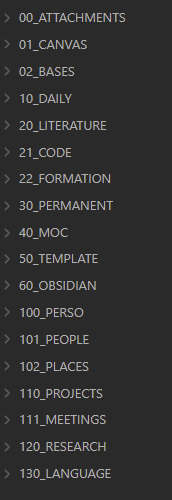I started a sort of Zettelkasten a few months ago, at the beginning of my PhD.
Now I’m facing several difficulties in my real life practice, so I take a break to think about my overall reading and note taking process (which is my main activity for now).
I do believe in the ZK method, but I need my ZK approach to meet my needs as a PhD student.
-
Efficiency : I read too slowly. I want to capture each concept I read about, considering that it may be useful, either for my personal understanding of wider concepts, or in a more practical way (choose an experimental technique for example). Maybe this is not a methodology issue but only self management…
-
Atomic vs. consistency : I spend a lot of time thinking before noting “simple” things : where should I note this idea/information ? Should it be added to an existing note ?
Lets take an example : I often deal with physical phenomena. What should I do with phenomena that are closely related, either because of strong interactions or because they are part of another phenomenon, or not fully meaningful on their own ? I end up with many “index notes” describing physical concepts, with links to smaller notes that I try to make “atomic”, but this process sometimes seems artificial to me… -
Organisation (related to point 2.) : I have an INDEX note with some entry points to my ZK, for example “Friction” which is a major field in my work. The “Friction” note is an index note in itself, containing a mix of explanations (as short as possible), divided in chapters, and links to smaller notes. I am more and more uncomfortable with this approach, but I feel stuck.
-
Maintenance : I have set up a tagging system to manage the notes status (from fleeting to permanent, loosely based on evergreen notes). Besides, I have a few folders : “Inbox” (fleeting), “Notes” (for what I consider permanent notes), “Ressources”, “Projects” and a few others.
But I don’t invest much time in the “maturation” process : basically, as soon as a note has links to others, I move it to “Notes” folder, with the lowest “maturity tag”. I know that some of this notes are still very incomplete and naive. Am I right to bet on a future visit the next time I address this concept to improve the note, or should I schedule the “maturation” process ?
I would really like to have a more “natural” note-taking process, which would still be ZK-compliant…
Thank you for reading my post to the end, and for any guidance you may give to me!
PS : also posted on Research & Reading — Zettelkasten Forum
